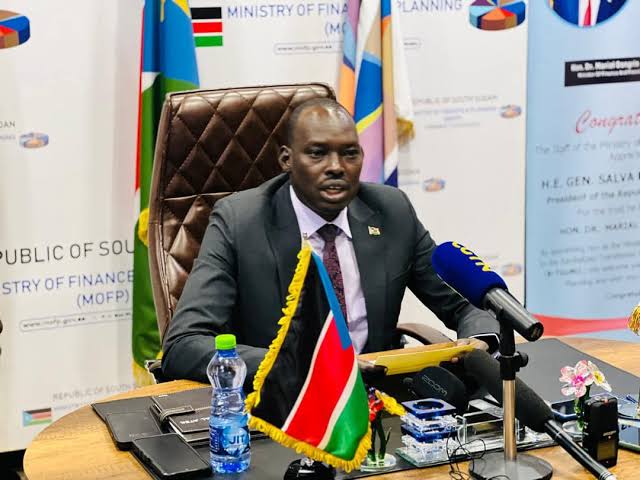
South Sudan’s economy has been severely weakened due to an ongoing cash shortage, according to the country’s finance minister. The minister revealed that the lack of liquidity has disrupted government operations, delayed public sector salaries, and slowed down key development projects across the country.
The cash crunch, which has worsened in recent months, is being blamed for the weakening of essential services and a drop in investor confidence. Ministries and government institutions are reportedly struggling to meet basic financial obligations, leading to widespread frustration among civil servants and service providers.
In a recent address, the finance minister admitted that the situation has reached a critical level, warning that without immediate financial reforms and external support, the country could face deeper economic distress. He noted that ongoing challenges such as declining oil revenues, currency depreciation, and limited access to credit markets have compounded the crisis.
Public workers in various sectors, including health and education, have reported going unpaid for months, while infrastructure projects have either stalled or been abandoned due to lack of funding. The private sector has also felt the impact, with banks limiting cash withdrawals and many businesses unable to import goods or pay employees regularly.
The finance minister emphasized the government’s commitment to implementing fiscal discipline, cutting non-essential spending, and seeking alternative revenue sources to stabilize the economy. Talks are also underway with international partners to explore possible financial assistance and debt relief measures.
Analysts warn that unless the liquidity issue is addressed urgently, the economy could continue its downward spiral, further undermining public trust and destabilizing the fragile post-conflict recovery process.

